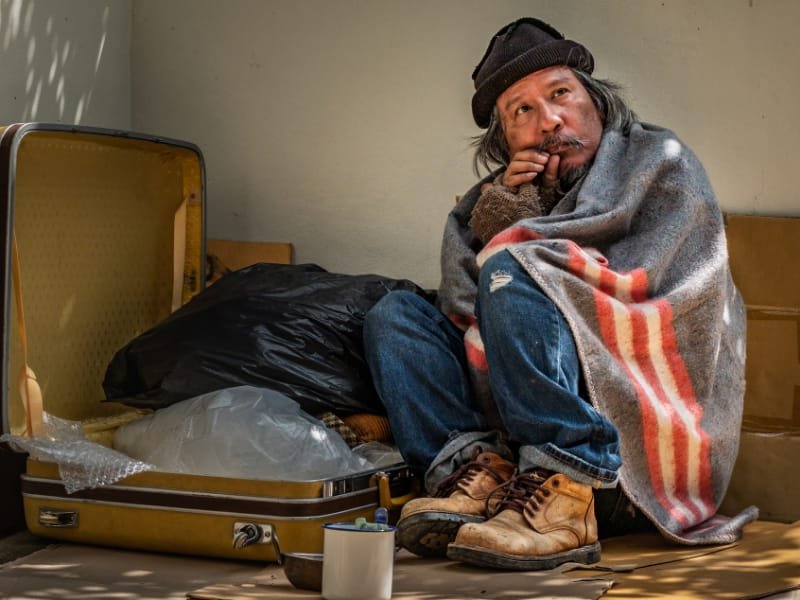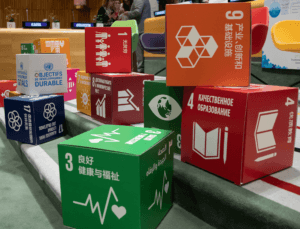With the commitment to end poverty, protect the planet and ensure all people everywhere enjoy peace and prosperity, the 2030 Agenda again gestured toward the same promise established under the Universal Declaration of Human Rights. Yet, the current reality shows that 1.3 billion people still live in multidimensional poverty with almost half of them children and youth.
Inequalities of opportunities and income are sharply on the rise and, each year, the gap between the rich and poor gets even wider. In the past year, as millions struggle through the erosion of workers’ rights and job quality to make it to another day, corporate power and the wealth of the billionaire class have recorded an unprecedented rise.
Poverty and inequality are not inevitable. They are the result of deliberate decisions or inaction that disempower the poorest and marginalized in our societies and violate their fundamental rights. The silent and sustained violence of poverty – social exclusion, structural discrimination and disempowerment – makes it harder for people trapped in extreme poverty to escape and denies their humanity.
The COVID-19 pandemic highlighted this dynamic, exposing social protection system gaps and failures as well as structural inequalities and diverse forms of discrimination that deepen and perpetuate poverty. In addition to this, the climate emergency constitutes new violence against people living in poverty, as these communities are unduly burdened by more frequent occurrences of natural disasters and environmental degradation, leading to the destruction of their homes, crops and livelihoods.
This year marks the 35th anniversary of the World Day to Overcome Extreme Poverty and the 30th anniversary of the International Day for the Eradication of Poverty. This Day honors the millions of people suffering from poverty and their daily courage and recognizes the essential global solidarity and shared responsibility we hold to eradicate poverty and combat all forms of discrimination.
The observance of the International Day for the Eradication of Poverty can be traced back to 17 October 1987. On that day, over a hundred thousand people gathered at the Trocadéro in Paris , where the Universal Declaration of Human Rights was signed in 1948, to honour the victims of extreme poverty, violence and hunger. They proclaimed that poverty is a violation of human rights and affirmed the need to come together to ensure that these rights are respected. These convictions are inscribed in a commemorative stone unveiled on this day. Since then, people of all backgrounds, beliefs and social origins have gathered every year on October 17th to renew their commitment and show their solidarity with the poor. Replicas of the commemorative stone have been unveiled around the world and serve as a gathering place to celebrate the Day. One such replica is located in the garden of United Nations Headquarters and is the site of the annual commemoration organized by the United Nations Secretariat in New York .
Through resolution 47/196 adopted on 22 December 1992, the General Assembly declared 17 October as the International Day for the Eradication of Poverty and invited all States to devote the Day to presenting and promoting, as appropriate in the national context, concrete activities with regard to the eradication of poverty and destitution. The resolution further invites intergovernmental and non-governmental organizations to assist States, at their request, in organizing national activities for the observance of the Day, and requests the Secretary-General to take, within existing resources, the measures necessary to ensure the success of the Day’s observance by the United Nations.
17 October presents an opportunity to acknowledge the effort and struggle of people living in poverty, a chance for them to make their concerns heard, and a moment to recognize that poor people are the first ones to fight against poverty. Participation of the poor themselves has been at the center of the Day’s celebration since its very beginning. The commemoration of October 17th also reflects the willingness of people living in poverty to use their expertise to contribute to the eradication of poverty.
Building a sustainable future requires us to intensify our efforts towards eradicating extreme poverty and discrimination, and ensuring that everyone can fully exercise their human rights. The full participation of people living in poverty, particularly in the decisions that affect their lives and communities, must be at the centre of policies and strategies to build a sustainable future. In this way, we can guarantee that our planet and our societies can fulfil the needs and aspirations of everyone – not only those of a privileged few – for this and future generations.
Therefore, it is appropriate that the theme — chosen by the United Nations, in consultation with people living in poverty and civil society organizations — recognizes that all people must come together to end poverty and discrimination in order to build a sustainable future in which the needs of the present are met without compromising the ability of future generations to meet their own needs.
Accelerating global actions for a world without poverty
In its resolution 72/233, the General Assembly proclaimed the Third United Nations Decade for the Eradication of Poverty (2018–2027). It also considered that the theme of the Third Decade, to be reviewed at its seventy-third sessions, should be “Accelerating global actions for a world without poverty”, in line with the 2030 Agenda for Sustainable Development. The core of the present report consists of an inter-agency, system-wide plan of action for poverty eradication to coordinate the efforts of the United Nations system, as well as recommendations concerning how to make the Third Decade effective.
More information at: https://www.un.org/en/observances/day-for-eradicating-poverty








